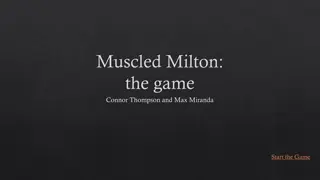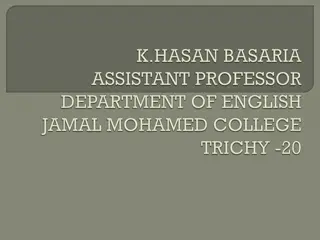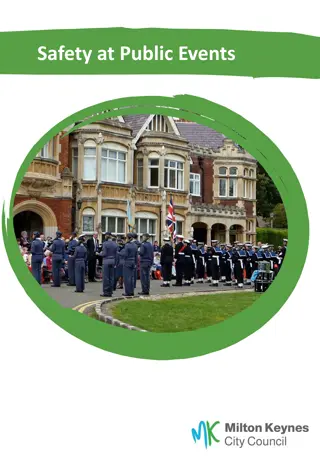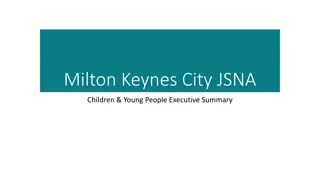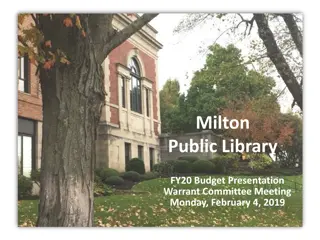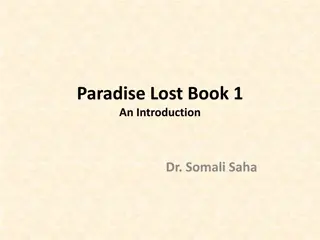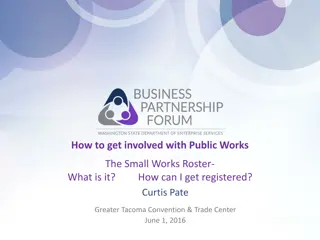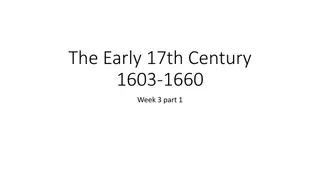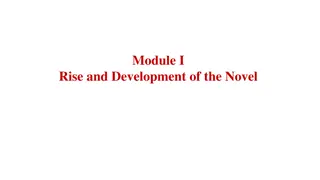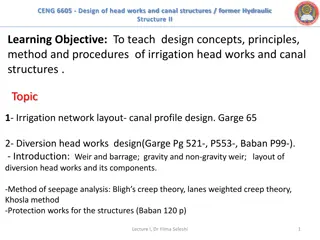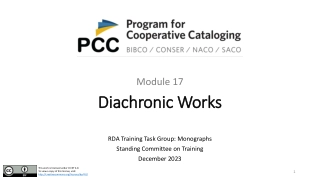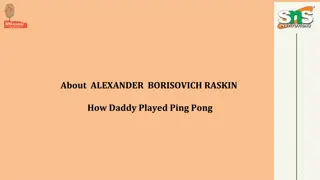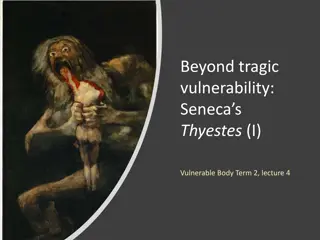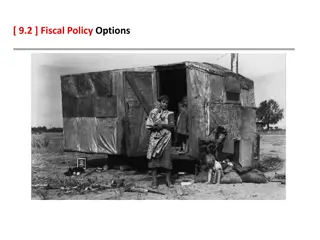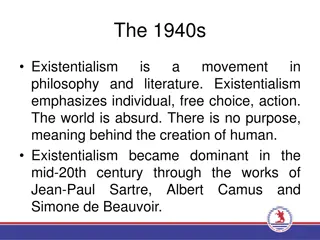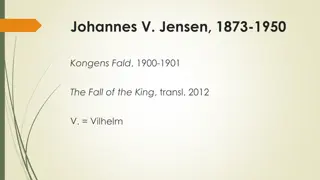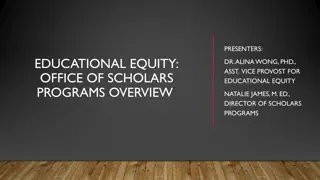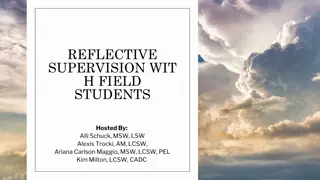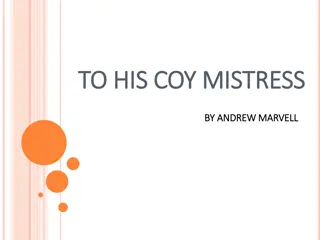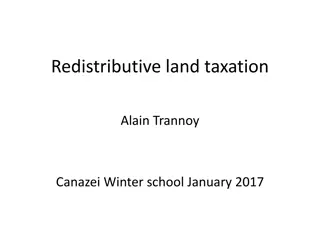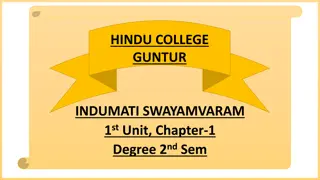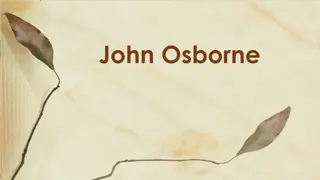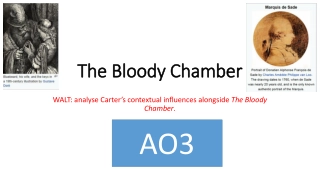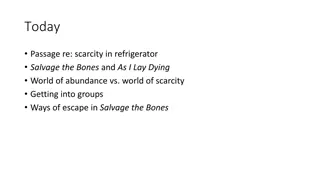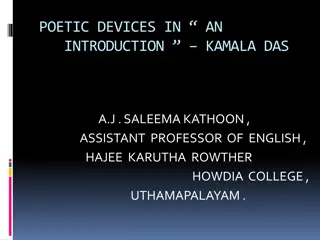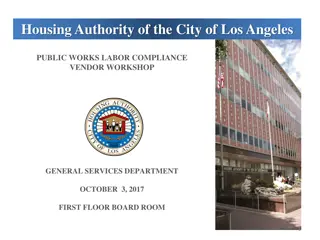The Life and Works of John Milton
John Milton, born in 1608 to a prosperous family, led a life marked by educational achievements, controversies, marriages, and political involvement. His career as a writer included works that stirred debates, such as his Divorce Tracts. Despite personal tragedies and political turmoil, Milton's dedication to literature shone through, culminating in masterpieces like "Paradise Lost." His life journey is rich with challenges, achievements, and contributions to English literature.
Download Presentation

Please find below an Image/Link to download the presentation.
The content on the website is provided AS IS for your information and personal use only. It may not be sold, licensed, or shared on other websites without obtaining consent from the author. Download presentation by click this link. If you encounter any issues during the download, it is possible that the publisher has removed the file from their server.
E N D
Presentation Transcript
Miltons Early Life Born December 9, 1608 to John, a prosperous scrivener, legal aide, real estate agent, notary, and money-lender, and Sara Milton. Youthful education and apprenticeship At the age of 10, begins receiving tutoring at home as a student of languages. At 12, enters St. Paul s School In 1625, at 17, enters Christ s College, Cambridge Though a hardworking student, he was argumentative and was suspended after a dispute with his tutor Returns to Cambridge later that year though he felt he was disliked by many of his fellow students and was dissatisfied with the curriculum.
Miltons Young Adult Life Received a BA from Cambridge in 1629 and MA in 1632 Then completed five years of independent study In 1638, set out on a tour of Europe, but returned early due to the death of two close friends and an impending English Civil War. Upon his return, instituted a private secondary academy for his nephews and aristocratic children.
Miltons Adult Life Prose and controversy Wrote about political turmoil, divorce, & defense of the execution of Charles I Milton s Divorce Tracts that spoke for divorce on the grounds of incompatibility caused an uproar in both Parliament and among the clergy, as well as with the general populace. Worked for Cromwell as Latin Secretary Went blind but had assistants to help him including writer Andrew Marvell
Miltons Family Life Married three times Wife #1 Mary Powell Was 17, Milton was 34 Left him to visit the family home and did not return until Milton makes plans to marry another woman Upon returning Milton and Mary Powell reconcile They have four children: Anne, Mary, John, and Deborah Mary dies from complications of Deborah s birth Son John dies a month later under mysterious circumstances Remarried to Katherine Woodstock who gives birth to a daughter Katherine a year later; both mother and daughter die within five months. Remarried a third time to Elizabeth Minshull
The End of the Commonwealth Oliver Cromwell dies in 1658 forcing Milton to hide to escape possible retaliation by loyalist s. Eventually arrested and imprisoned. Released by order of Parliament. Goes back to tutoring aristocratic children.
Miltons Retirement Turned to Literature: Paradise Lost published in 1667, in ten books. Paradise Regained, 1671 Samson Agonistes, 1671 Died in 1674 from complications with gout Buried in the church of St. Giles, Cripplegate. A monument to him rests in Poets Corner at Westminster Abbey.
Paradise Lost Overview Themes: Of man s first disobedience and the fruit / Of that forbidden tree whose mortal taste / Brought death into the world and all our woe, (I. 1-3) I may assert Eternal Providence, / And justify the ways of God to Men. (ll. 25-26) Structure I-III: Adventures of Satan IV: Entry of Satan into Paradise V-VI: War in Heaven VII-VIII: Problems of Comprehending Creation X-XII: History of Mankind
Paradise Lost Overview Balances Consult in Hell (Book II) and Consult in Heaven (Book III) Heavenly Trinity of Father, Son and Holy Ghost and trinity of Satan, Sin and Death Satan volunteering to seduce man and Son volunteering to redeem man Satan s fall and Adam s fall Style Full of Allusions and Epithets Epic Similes (see the comparison of Satan to large legendary creatures such as Leviathan, Bk. I, lines 197-209) Long Complex Sentences
Paradise Lost as Epic Epic a long narrative poem that recounts, in a serious tone and stately language, heroic exploits and dramatic events. Epic Conventions The story begins in medias res. In Medias Res is Latin for "it begins in the middle of things" and then has flashbacks to explain action leading up to that point. The story begins with an invocation (prayer) to a god or gods, in classical times a muse was called upon for inspiration. The story begins with a statement of theme. Always, because these poems are so long and so complex, although the basic stories would have been familiar to the audiences, the poet would begin with announcing what the recitation was to be about
Paradise Lost as Epic The story has many epithets. These epithets are re-namings or nicknames of the characters, gods, or things by stock phrases. (e.g. Satan is Chief of Hell and Prince of Darkness) The story uses catalogues of things and characters; there are many lists, both long and short. There are long and formal speeches by many characters. Gods intervene in the affairs of human beings in these stories.
Paradise Lost as Epic Epics frequently have epic digressions. These are passages that do not further the action of the story because they are asides or because they are repetitions. The settings of these stories are vast. The heroes embody the values of their civilization.
Book I Milton begins his epic poem Paradise Lost with an invocation to a muse. Milton explains that his goal in the poem involves justifying the ways of God to men. He explains that God threw rebel angels out of heaven into hell, a scene which will be discussed in detail later on in the poem. The poem's action shifts to hell, where Satan and his confidante Beelzebub have just been thrown. Satan questions if they should try to get revenge on God by force or guile. Satan tells Beelzebub that "the mind is its own place, and in itself can make a heav'n of hell, a hell of heav'n." Satan tries to make the best of the situation in hell, explaining "better to reign in hell, than serve in heav'n." They build a temple known as Pandemonium, which will serve as the location of Satan's throne and a meeting place. (attempting to mimic heaven?)
Additional Terminology Allusion a reference to a well-known person, place, event, written work, or work of art. Allegory a literary work in which all or most of the characters, settings, and events symbolize ideas, qualities or figures beyond themselves. The overall purpose is to teach a moral lesson Theme The main idea; sometimes expressed as a general statement about life.


